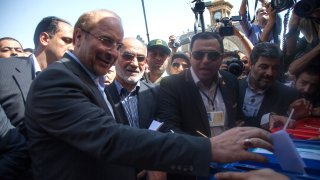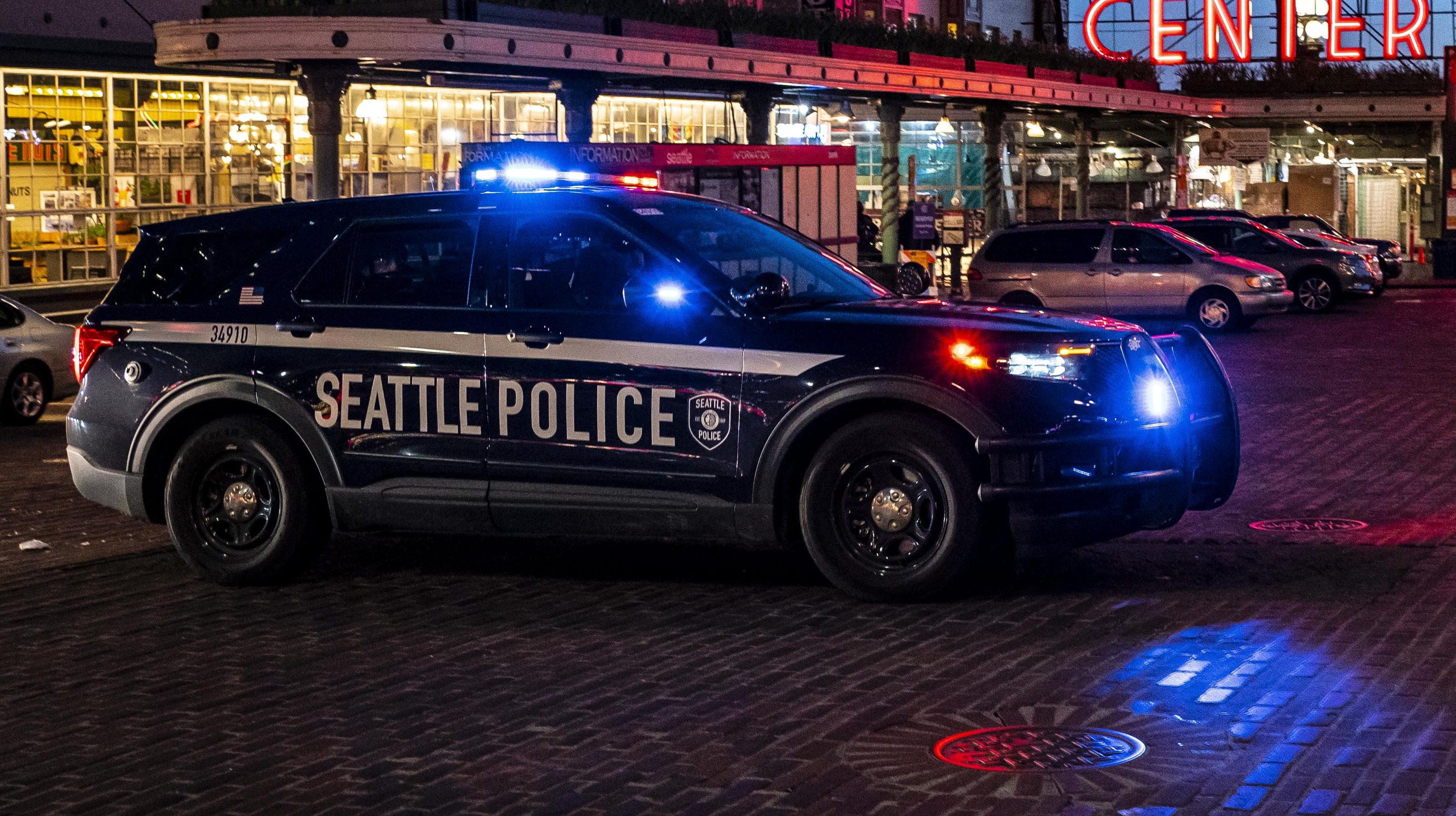
Iran's hard-line parliament speaker said Sunday a temporary deal between Tehran and international inspectors to preserve surveillance images taken at nuclear sites had ended, escalating tensions amid diplomatic efforts to save the Islamic Republic's atomic accord with world powers.
As fellow hard-liners demanded Iran delete the images, officials delayed an earlier-planned news conference by the head of the International Atomic Energy Agency in Vienna. That signaled negotiations between the United Nations agency and Tehran will continue through Sunday night.
The last-minute discussions further underscored the narrowing window for the U.S. and others to reach terms with Iran. The Islamic Republic is already enriching and stockpiling uranium at levels far beyond those allowed by its 2015 nuclear deal.
Iran’s hard-line parliament in December approved a bill that would suspend part of U.N. inspections of its nuclear facilities if European signatories did not provide relief from oil and banking sanctions by February. The IAEA struck a three-month deal with Iran in February to have it hold the surveillance images, with Tehran threatening to delete them afterward if no deal had been reached.
Get top local stories in Philly delivered to you every morning. Sign up for NBC Philadelphia's News Headlines newsletter.
That three-month deadline expired Friday under the Gregorian calendar. Under the Persian calendar, however, the three-month deadline comes on Monday.
On Sunday morning during a session of parliament, speaker Mohammad Bagher Qalibaf announced the deal had expired. He said Iran’s Supreme Leader Ayatollah Ali Khamenei, who has final say on all matters of state, supported the decision to see the deal as void.
"After these three months, the International Atomic Energy Agency definitely won’t have the right to access the camera footage or transfer them,” he said.
U.S. & World
Stories that affect your life across the U.S. and around the world.
Qalibaf, a member of Iran's top Supreme National Security Council,previously preempted another nuclear program announcement in April as well.
Hours later, however, a website called Nournews that’s believed to be close to Iran’s Supreme National Security Council quoted an anonymous official suggesting Tehran’s deal with the IAEA could be extended “another month.”
The nuclear negotiations have been plagued by contradictory, anonymously leaked information coming from Iran. It's likely a sign of the conflict between the administration of the outgoing President Hassan Rouhani, the relatively moderate cleric who clinched the 2015 deal, and the hard-liners now seeking to replace him.
In Vienna, the IAEA had said its Director-General Rafael Mariano Grossi would brief journalists Sunday afternoon on Iran. The agency said Sunday night that the briefing would be delayed as consultations between the IAEA and Iran continued.
It wasn’t immediately clear if the images from February until Saturday had been deleted. Before Qalibaf’s remarks, lawmaker Ali Reza Salimi urged an open session of parliament to ensure Iran’s civilian nuclear arm “erased” the images. The Atomic Energy Organization of Iran, the country's civilian atomic agency, did not immediately comment on the decision.
“Order the head of the Atomic Energy Organization to avoid delay,” said Salimi, a cleric from Iran’s central city of Delijan. The “recorded images in the cameras should be eliminated.”
Under a confidential agreement called an “Additional Protocol” with Iran, the IAEA “collects and analyzes hundreds of thousands of images captured daily by its sophisticated surveillance cameras,” the agency said in 2017.
It also wasn't clear what this meant for in-person inspections by the IAEA. There are 18 nuclear facilities and nine other locations in Iran under IAEA safeguards.
In 2018, then-President Donald Trump pulled the U.S. unilaterally out of the nuclear deal, known as the Joint Comprehensive Plan of Action. An escalating series of incidents since Trump’s withdrawal has threatened the wider Mideast.
Over a year ago, a U.S. drone strike killed a top Iranian general, causing Tehran to later launch ballistic missiles that wounded dozens of American troops in Iraq.
A mysterious explosion also struck Iran’s Natanz nuclear facility, which Iran has described as sabotage. In November, Iranian scientist Mohsen Fakhrizadeh, who founded the country’s military nuclear program some two decades earlier, was killed in an attack Tehran blames on Israel.
President Joe Biden has said he's willing for the U.S. to re-enter the nuclear deal. Weeks of negotiations in Vienna have been described as positive, though no draft agreements have been released. The U.S. also is not directly talking to Iran in the sessions.
Speaking Sunday to ABC's “This Week with George Stephanopoulos.” U.S. Secretary of State Antony Blinken described Iran as taking “destabilizing actions throughout the Middle East.” However, he said in order to counter that, “the first thing that we need to do is put the nuclear problem back in the box."
“What we haven’t yet seen is whether Iran is ready and willing to make a decision to do what it has to do,” Blinken said. “That’s the test and we don’t yet have an answer.”
Abbas Araghchi, the Iranian diplomat leading the Vienna talks, tried to turn around Blinken's framing on Twitter early Monday. He wrote that the U.S. “must first provide verifiable sanctions lifting. Iran will then resume full implementation.”
“Is the U.S. ready?” he asked.
___
Gambrell reported from Dubai, United Arab Emirates.



